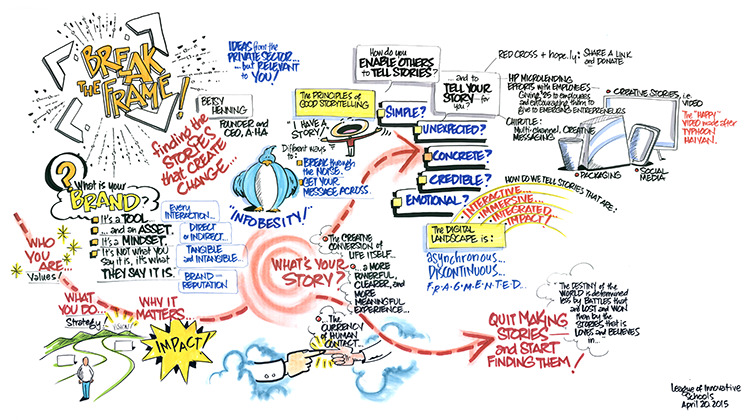
There’s been a lot of discussion among policymakers and the media recently about the pitfalls of using technology in the classroom. Many of these conversations are worthwhile – it’s important to be skeptical when spending scarce dollars for public education. The problem is that this debate often centers around the wrong question: Does technology belong in the classroom?
If we keep asking this question, we won’t make any progress. We know that technology belongs to the classroom. Have you ever asked whether technology belongs in your workplace? Technology is a tool that helps us develop and apply skills we all value – curiosity, problem-solving, persistence, collaboration, information literacy.
So why do we talk so much about devices and software?
Maybe because it’s easier. Technology is tangible. You can see it, touch it, and interact with it. You can’t see curiosity or persistence. So when technology “failures” occur in our schools, it’s easy to blame what’s right in front of us.
In the information age, these failures get attention, spread quickly, and shape our discussions. The absence of failure often goes ignored.
Through our work with the League of Innovative Schools, a national coalition of 57 forward-thinking school districts, we know that the success and failure of technology initiatives are not black-and-white. In fact, our districts rarely even distinguish between a “technology” initiative and a “learning” initiative. People make or break these efforts, not gadgets.
These districts focus on outcomes – how to instill the skills to create lifelong learners and global citizens. Technology helps students see the world, solve problems, and connect with others. It’s a tool to get there, not the end point.
When it comes to technology – something so ingrained in our daily lives – what if we stop asking “why” and start asking “how”? What if we told stories about solutions instead of failures?
These prompts guided our recent meeting of superintendents and other leaders from the League of Innovative Schools, co-hosted by Vancouver Public Schools. We wanted League members to tell us why they are unique, from the perspectives of leaders, educators, and students.
In response, 18 districts submitted nearly 50 videos for our first League of Innovative Schools film festival. These submissions fell into three categories:
It’s easy to see from these films that school districts are doing incredible things that few people outside – or even within – those communities know about. There are small and big victories occurring every day. There are fascinating perspectives on teaching and learning that are not represented in the mainstream media and policy discussions.
Take for instance, “Maggie’s Story,” from Blue Valley Unified School District, in Overland Park, Kan. Students at the district’s Center for Advanced Professional Studies aren’t just using 3-D printing and studying STEM subjects. They are working to change a young student’s life.
And listen to the insights in this video produced by students in Kettle Moraine School District, in Wales, Wisc. These students aren’t thinking about 1:1 device initiatives or state policies for digital textbooks. They just want an engaging and relevant education.
At our meeting we also learned about a student in Utica Community Schools, Mich., that started a computer programming club for girls and recruited employees at Google, SpaceX, and University of Michigan to join the class virtually. We learned about a digital literacy course for parents in Indian Prairie School District, Ill., that led to many households getting connected for the first time.
Will any of these stories alone shift policy or improve test scores? Probably not. But they can start to change the conversation about public education and technology’s role in it. Learning, not devices, should be the story. It’s up to us to tell that story, or someone else will.